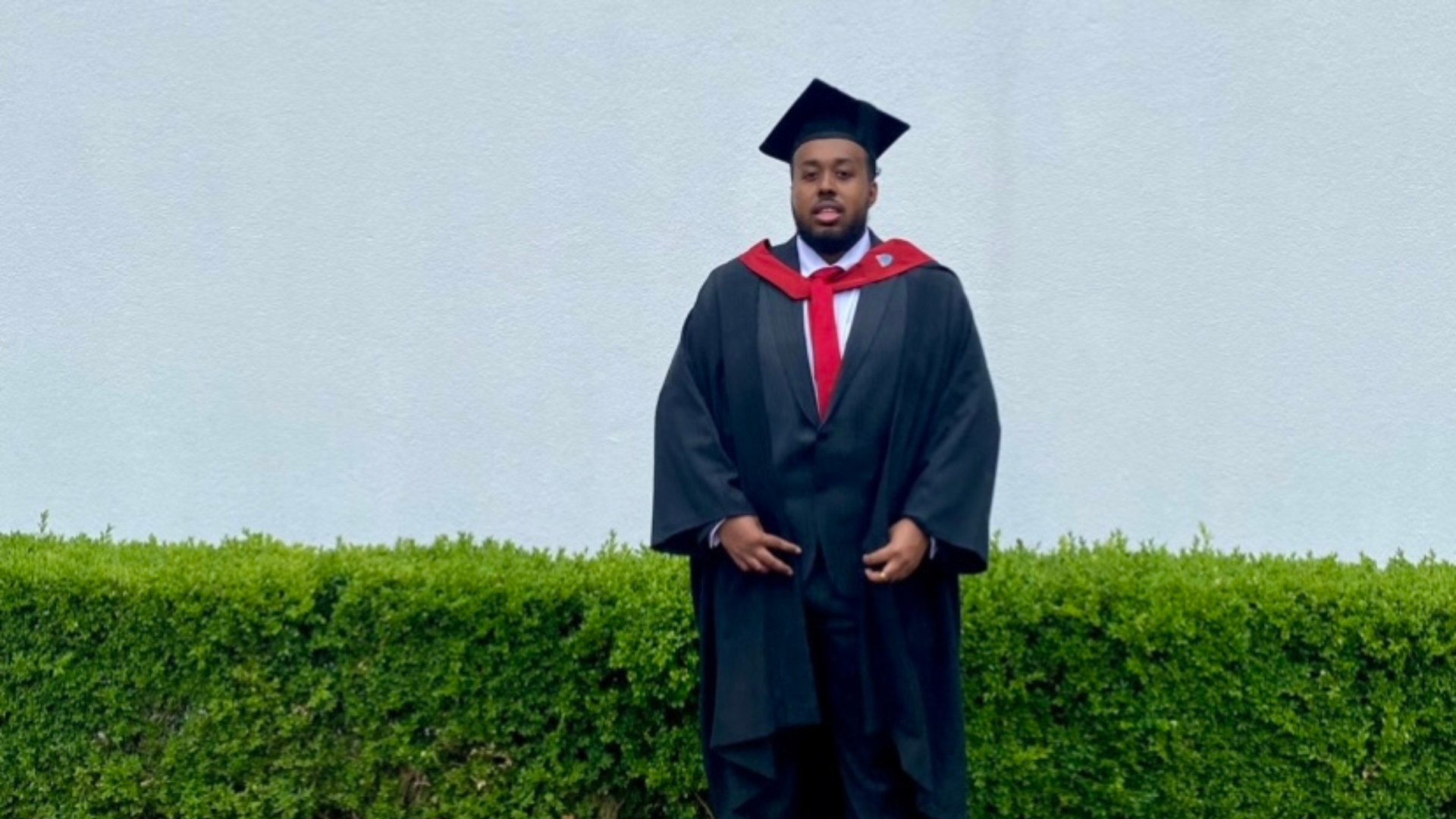
Help for newly qualified pharmacists
Find out more about how to develop your career and confidence as a newly qualified pharmacist.

We asked a newly qualified pharmacist to reflect on her time as a trainee and share how she navigated the transition from trainee pharmacist to responsible pharmacist.
“You’re probably wondering when is all that studying going to stop? As future pharmacists or current trainee pharmacists or newly qualified pharmacists, we learn to appreciate that we’ve done five years of hardcore studying. Yep, five long years. And I can tell you one thing as being a new qualified pharmacist now in a hospital setting, 8 to 9 months into my role, I can say it has paid off in more than one way.
I don’t mean just the pay rise! So starting off, I trained in a hospital for my training year post-graduation. It was 12 months and definitely an eye opener into the 9 to 5 lifestyle that I was not equipped to from university. We, especially as pharmacy students at university doing a four year masters, were all in the library studying way too hard and maybe not enough at times, but trying to get through those lectures, especially closer to exam times.
It was hectic and it was a lot, and it was hard work. We gave up blood, sweat and tears, only to then do another training year. Once you graduate into a big new environment and you’re a full-time worker, I think often as trainee pharmacists, we forget to appreciate that you are a full time worker in the NHS or community pharmacy or the industry or the GP, wherever you are and you’re doing a lot … you’re studying and you’re doing the job.
So once you become qualified, you really do appreciate how far you’ve come. And I definitely do for myself. I’m very grateful that all those five years of studying and giving exams, doing all skills, practical assessments, prescription checking … it all matters. Because once you’re qualified, you actually have to practice to be a newly qualified pharmacist. I continued my training in hospital.
I thankfully passed the General Pharmaceutical Qualification Exam, which is the sixth sign, and I went straight into a new job in a different hospital for my training. The reason I stayed in hospital was that I enjoyed the clinical setting. And wherever you are, wherever you do your qualifying job, I think choose a place where you can really still learn and you’re not thrown onto the hard rocks by yourself because you still need some guidance.
That’s what I learned as a newly qualified pharmacist, that you’re still learning and you’re not going to know everything and you don’t have to know everything. You just need to be safe and you need to be able to communicate. But that takes time. And that’s why you have the training year. And the training year is there for you to build up these skills that you may not have had the opportunity to do at university, because, again, we were studying quite a lot!
That's what I learned as a newly qualified pharmacist, that you're still learning and you're not going to know everything and you don't have to know everything.
Now, being in a new role as a new qualified pharmacist in hospital – I can’t speak for GP or community pharmacy, but I can imagine it’s very stressful but also rewarding and it’s a different sort of challenge – but in hospital I have definitely learned to appreciate other members of my team … pharmacy technicians, managers, nurses, dieticians, doctors, consultants.
And you learn from each other, and you may think you may not be able to give your input, but you know more than you realize after you’ve completed the GPhC exam. Because after all, if you passed it, you know what you’re doing. And even if you don’t pass the first time or the second time, you have a chance to do it again. And ultimately, once you do pass it, no matter how many times it took, you’re capable of being a pharmacist. And that’s the confidence you need to take when you’re newly qualified. It’s been challenging, but I’ve been able to go on different ward rotations in different specialties, including gastro which is very interesting as well, and different to something like respiratory. And these are all wards based on different specialties. There’s also paediatrics that I have currently been training on. And I think that’s the best place of going to a new job when you’ve qualified, where you’re able to have exposure to everything and everywhere and you’re not just stuck in one place because you want to gain as many skills as you want and you can in your first few years of qualifying.
What I would tell myself, looking back in these past eight months being qualified (well, nine months. I started my higher education diploma which is something I do at University College London as part of my hospital training, training meaning as a junior pharmacist), I’d say, maybe don’t jump into that straight away unless you have fully rested after your training year. It’s really important that you take a break from completing a very hard exam that can mentally drain you (which was the GPhC exam) and then jumping into a job straight away. It may not be the healthiest solution. That is what I did, but looking back, I wish I took a break because once you start a responsible 9 to 5 job, you don’t often find or have the time … the luxury to take off time and have a break.
And that’s important not just for your mental wellbeing, but also for your clinical practice so you are practicing safely and when you’re healthy and well.
Also don’t be afraid of making mistakes. When you’re newly qualified, you feel like you can’t make a mistake because someone will judge you who’s your senior or you will feel like you’re unsafe or you’re going to think that something will happen to the patient … hopefully not! No one wants to harm a patient intentionally. No, none of us do that intentionally, but we are human and not machines, and we’re going to make mistakes. And if anything, the best thing to do is learn from them so we never do it again. Log those mistakes if you want and see how far you’ve come. You won’t make the same mistake twice – I can more or less guarantee you that because you really do learn whilst you’re on the job.
Don’t forget that you’re not alone as much as you feel alone. Whether you’re the only new junior or you’ve got other juniors, it’s not a competition, it’s a teamwork. You are all working together, so remember to help each other out because once you’re helping each other out with your wards and managing tasks, you get the day done quicker and easier. Teamwork is a big part of any job, but as a pharmacist, you’re responsible for various other members of your team, like technicians. When you’re doing a late shift, you really need to learn to help one another out. So don’t be afraid to ask for help. But also don’t be afraid to give help and you will get that back in return as well and it really does pay off. So, don’t feel like you have to do everything by yourself and alone and isolated, because it’s never going to be beneficial to you or anyone else if you feel or stay alone. So definitely reach out for help. Don’t be embarrassed and don’t be ashamed.
So definitely reach out for help. Don't be embarrassed and don't be ashamed.
I think the best advice I can give with mental health and wellbeing is taking a break.
And if you ever feel sick, whether that be mentally or physically or you know you’ve got the cold, don’t ever feel guilty that you can’t come in to work and you need to take a sick leave. Don’t feel guilty if you need to take some annual leave, book it in advance. Have that rest time because if you don’t, you’re going to overwork and burn out and you won’t perform well and you you might just make a mistake.
It’s happened to me before, and I’ve learned my lesson. And once you come back from taking a break, you feel refreshed. You want to go to work and you want to have a positive mindset. And then it comes naturally because you’re not burning yourself out. So, see the signs, speak to someone, enjoy your social life outside of work.
You are more than your job and you’ll find that you actually enjoy working as a pharmacist with other people because you enjoy it together and looking after each other. That’s my biggest advice.”

Find out more about how to develop your career and confidence as a newly qualified pharmacist.

Abdikarim reflects on his experiences of the trainee foundation placement and, looking back, what tips he would give his trainee-self.

Scott reflects on his time as a trainee pharmacist and shares tips on how to look after your wellbeing whilst revising for the assessment and when you're a fully qualified pharmacist.